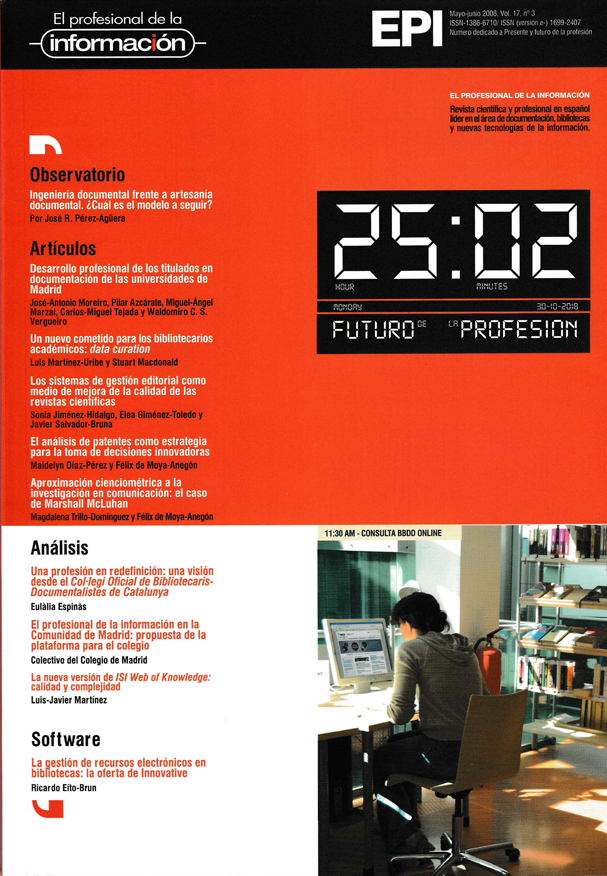A new role for the academic librarian: data curation
DOI:
https://doi.org/10.3145/epi.2008.may.03Keywords:
Research data, Academic libraries, E-research, Data-curation, Scientific repositories, Open access, Cyberscholarship, Academic librarians, Data librariansAbstract
Academic libraries are facing a range of new challenges in the 21st century. Models of scholarly communication are experiencing a revolution with the advent of open access, with libraries adopting a lead role in self-archiving their institutional outputs in digital repositories. In addition, researchers are taking advantage of the computational power at their disposal, conducting research in innovative and collaborative ways that use and produce vast amounts of data. Such research-generated data underpins intellectual ideas, which in turn propagates new methodologies, analysis and ultimately knowledge. It is crucial that we preserve such mechanisms and output for future generations. With the experience gained from traditional cataloguing, indexing and organisational skills coupled to those acquired in developing, establishing and maintaining institutional repositories, the time is ripe for academic librarians to explore a new role. Research data need to be looked after from the moment of creation through their life cycle. The concept of data curation refers to activities like digital preservation but also those geared towards adding value to the data so that they can be discovered and reused. This article introduces e-Research and the likely function of academic libraries in this domain. After this, data curation is described and several initiatives of interest for information professionals in this field are presented.
Downloads
Downloads
Published
How to Cite
Issue
Section
License
Dissemination conditions of the articles once they are published
Authors can freely disseminate their articles on websites, social networks and repositories
However, the following conditions must be respected:
- Only the editorial version should be made public. Please do not publish preprints, postprints or proofs.
- Along with this copy, a specific mention of the publication in which the text has appeared must be included, also adding a clickable link to the URL: http://www.profesionaldelainformacion.com
- Only the final editorial version should be made public. Please do not publish preprints, postprints or proofs.
- Along with that copy, a specific mention of the publication in which the text has appeared must be included, also adding a clickable link to the URL: http://revista.profesionaldelainformacion.com
Profesional de la información journal offers the articles in open access with a Creative Commons BY license.




